at the Recybery
Making bleach
With store shelves empty of essentials like cleaning supplies, it's time to look around for a way to make them from scratch. Here's one example: washing soda (sodium carbonate) is added to swimming pool chlorinating granules (calcium hypochlorite). Chalk powder (calcium carbonate) precipitates, leaving liquid bleach (sodium hypochlorite) to be decanted off.
Ca(ClO)2(aq) + Na2CO3(aq) → CaCO3(s) + 2NaClO(aq)
Our first run at the Recybery yielded five and a half gallons of 6% bleach! They were donated to groups like the local Food Not Bombs chapter.
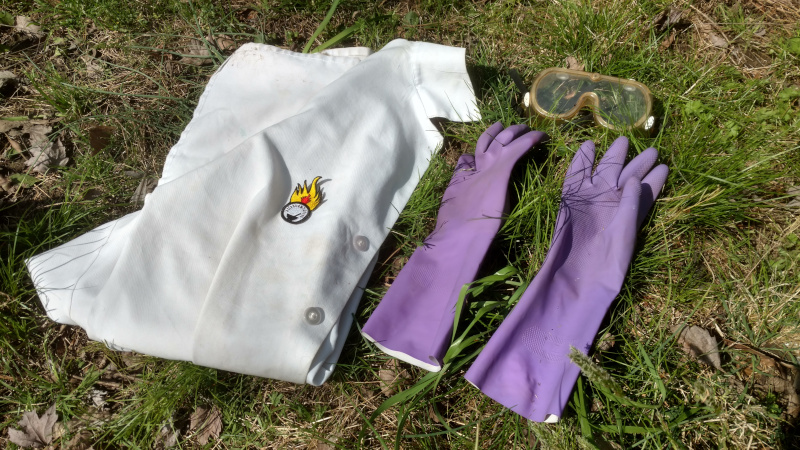
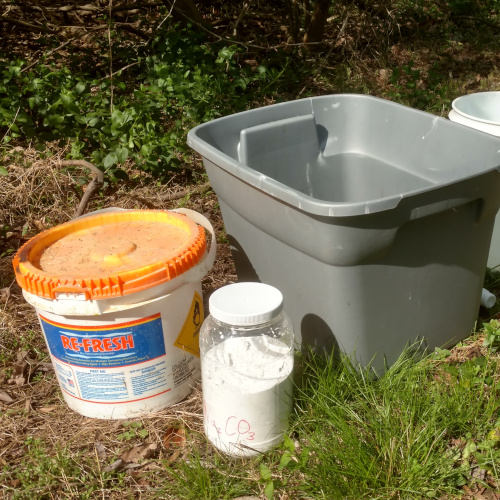
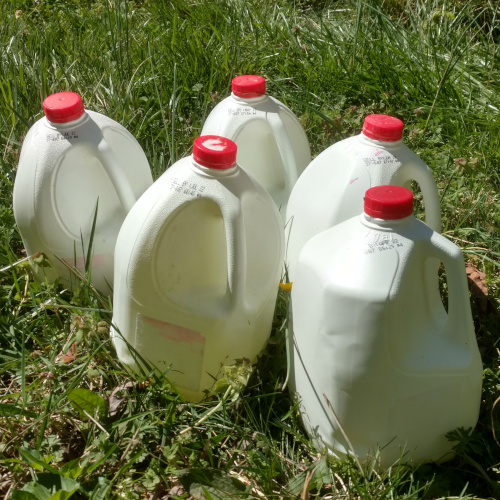
Sewing face masks
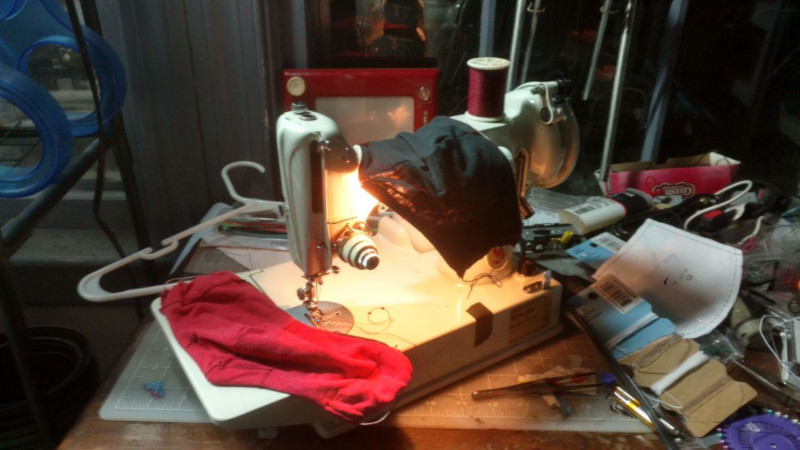
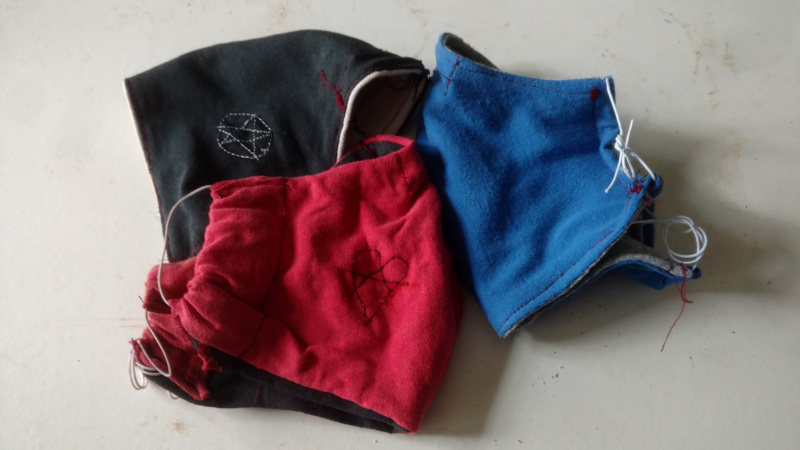
Folding At Home
One of the first things the Recybery worked on was crunching numbers for distributed scientific computing through BOINC. FoldingAtHome is one such distributed computing project; it runs protein dynamic simulations for biomedical researchers, and has recently taken on COVID-19 reseach, looking for therapeutic targets. Our computer is contributing to the HackADay team - check out our stats!and Beyond
Faceshields from UNC BEAM
Medical workers have found themselves without protective face shields - the university makerspace, BEAM, has stepped in to fabricate them by the hundred, while maintaining protocols for working safely during a pandemic! We gave them a gallon of bleach so they could keep running.Triangle mutual aid
You might have seen portable handwashing stations popping up around town - they're a project of Triangle Mutual Aid and Bonneville Electric. They're following the build instructions found here.Misc 3D Prints
The NIH is maintaining a library of community-sourced 3D prints specifically useful during this crisis. Examples include headbands for face shields and plastic clips to connect face mask straps to (thus protecting the ears)___
"My novella “The Masque of the Red Death” is a tribute to Poe; it’s from my book Radicalized. It’s the story of a plute who brings his pals to his luxury bunker during civlizational collapse in the expectation of emerging once others have rebuilt ... And naturally – for anyone who’s read Poe – it doesn’t work out for them. They discover that humanity has a shared microbial destiny and that you can’t shoot germs. That every catastrophe must be answered with solidarity, not selfishness, if it is to be survived." -Corey Doctorow
